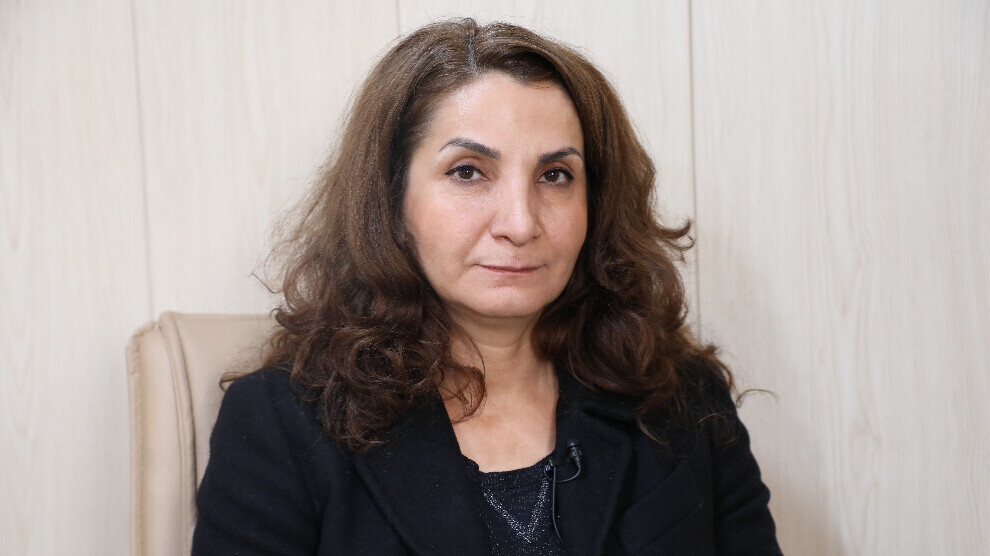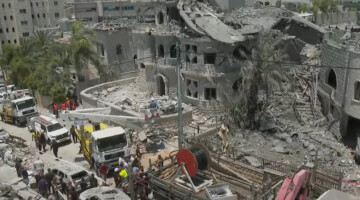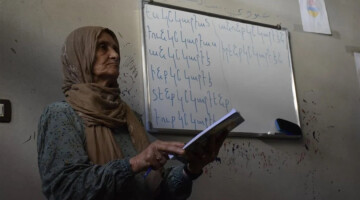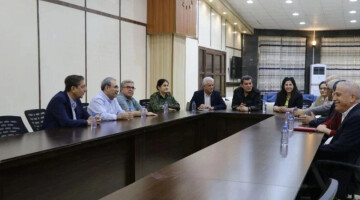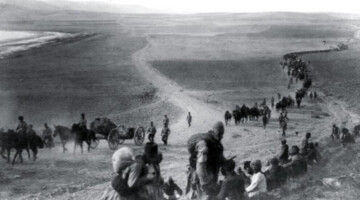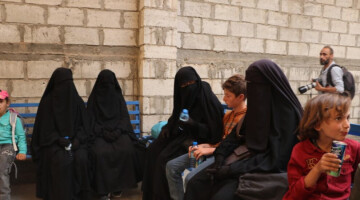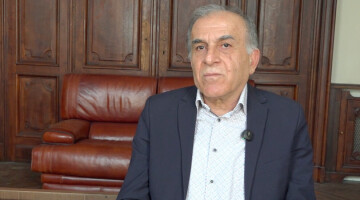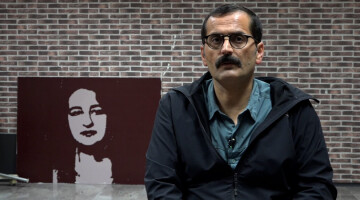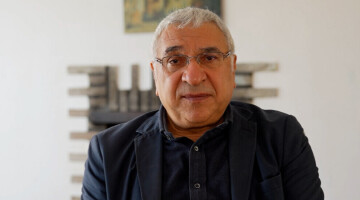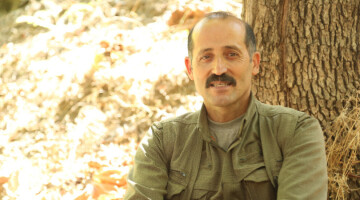In the autonomous region of Northern and Eastern Syria, a new Social Contract came into force on 12 December after a long democratic process of discussions involving the whole of society. The new text regulates the fundamental rights and freedoms of people and various population groups, the structure of democracy, self-defense and the judiciary. This new version of the Social Contract has been discussed in society since 2018, as the legislation passed two years earlier did not include the Arab regions of Raqqa, Tabqa, Manbij and Deir ez-Zor.
Dr. Ebîr Hessaf is a member of the coordination of the Women's Council of North and East Syria. In this interview with ANF, she talked at length about the new Social Contract, that, she said, “takes into account all ethnic identities, religions, denominations, languages, cultures”.
Hessaf said: “For the first time, the peoples of the Middle East have agreed to live together. And for the first time, Kurds, Arabs, Syriacs, Turkmen, Armenians, Circassians, Chechens, Muslims, Christians and Yazidis are named in a social contract and their rights are guaranteed.”
In 134 paragraphs, the new Social Contract renamed itself changing from the Autonomous Administration into Democratic Autonomous Administration of the Northern and Eastern Syria Region. In addition, the contract is a concrete design of social democracy adapting to current needs, starting from the neighbourhoods, through cities, cantons and up to the Democratic Council People. The councils are a mixture of representative elections and representatives of organized social groups such as ethnic groups, religious communities, women and youth. The system was further adapted to the needs of the region and society, from the basic municipality to the council, from the basic economy to the national economy, from health to education.
The new Social Contract adheres to the radical democratic principles of democratic autonomy. At the same time, the creation of an independent institution for financial supervision is planned to deal with the economic crisis and ensure solvency. A court should be set up to protect the Social Contract.
The Women's Council was explicitly included as a body in the most important articles of the social contract and thus legally protected.
The regional structure was also changed and will now consist of seven cantons: Cizîrê (Jazira), Firat, Raqqa, Tabqa, Deir ez-Zor, Manbij and Afrin-Shehba.
How did the discussions about the new Social Contract begin?
In 2014, a Social Contract was approved that only included the regions of Afrin, Cizîrê and Kobanê. We can say that it was a text that covered the liberated areas and the regions with a large Kurdish population. The Kurdish people were the leading forces in this process, but we can say that the Social Contract also included the other ethnic identities. In 2017, when the transition to the Democratic Confederalism system was made, an election was held in two stages. But due to the Turkish invasion of Afrin, the third stage of this process could not be achieved. Since the construction of the system was not completed, a dual system was created in the region. While the system of self-government was being implemented, the council system existed in parallel. With the liberation of other areas such as Tabqa, Raqqa, Deir ez-Zor and Manbij, the region expanded further. Civil councils were also declared in the liberated areas. These civil councils were integrated into the Autonomous Administration of the Northern and Eastern Syria region. During this period the Social Contract was implemented, but in some areas there were civil councils, while in others the system of Autonomous Administration was predominant. During this period, Cizîrê, Afrin and the Euphrates region were organized as self-government systems, while Raqqa, Tabqa and Manbij were organized as civil councils. With the liberation of Deir ez-Zor, the establishment of a civilian council was also proclaimed there.
What path was taken regarding the liberated areas?
A new attempt was made for the third stage to be implemented in 2021. It was about changing the Social Contract and adapting it to the new conditions. The parallel existence of the system of self-government on the one hand and the system of civil councils on the other hand complicated the construction of the model in Northern and Eastern Syria and brought both confusion and deviations. For this reason, a committee of 158 people was formed to create a new social contract and the transition to a new system was decided. The committee included representatives of various ethnic, religious and confessional groups as well as youth and women. A select committee of 30 people, selected from the 158 members, would also cover the entire spectrum. The draft of the text was discussed for about a year. Dozens of meetings were held, the draft was submitted to many institutions and organizations, and their opinions and suggestions were sought. A four-day meeting took place in December at which the comments and suggestions received were incorporated into the draft. The Social Contract was adopted on 12 December by the General Assembly of the Autonomous Administration of Northern and Eastern Syria.
You said that the existing system has encountered obstacles in creating an organized and inclusive system. What did you mean by that?
There were areas that were not liberated. Therefore, they were not included in the creation process of the Social Contract. These people living in the regions that have since been liberated also had the right to take part in this process. The fact that the administrative system was not holistic led to crises. There was a need to unify the system so that people could live together under equal conditions. One of the most important features of the Social Contract is local confederalism. This also had to be revised. The proportion of women used to be between 30 and 40 percent, but now it is 50 percent. In some regions the family law was already in force, in others not yet. A principle of the new social contract is that family law must be implemented everywhere. Many similar examples can be cited.
What is the meaning of the Social Contract?
The peoples living in the region have the right to create a guide for their lives. As is well known, the Syria crisis is now in its thirteenth year. In the midst of this crisis, a system was created that both withstood war and built a democratic, social and economic life. This system was realized based on the wishes and work of the people. Therefore, a roadmap had to be set so that people could come together, discuss and shape their future in a new building process. Therefore, such a treaty was necessary. Northern and Eastern Syria is known to be a rich region inhabited by diverse ethnic identities. There were widespread prejudices about whether the different identities could coexist and build a common life in the region, but within the democratically structured system, every national, ethnic or confessional identity, every language and culture and every worldview found its representation through the social contract. It can be said that for the first time the peoples of the Middle East were able to agree on a common life. The Social Contract is a contract of the peoples and must be protected by the peoples. Because just as it represents a great opportunity for the Middle East, it is also a great opportunity for the Democratic Autonomous Administration of Northern and Eastern Syria. If women's rights are protected and defended in a constitution, women must be the defenders of that text. If the rights of youth are protected and the uniqueness of different ethnic identities, religions and denominations is not ignored but guaranteed, society should be the defender of this contract.
The Social Contract also has the potential to be a solution to the crisis in Syria. Since the beginning of the Syrian crisis until today, several international conferences have been organized. But what is the result of these meetings? Millions of Syrians are displaced today, thousands are missing, tens of thousands of houses have been destroyed and looted, and millions of people are living in tents. So far, no other option has been presented than the Social Contract, which provides for the construction of a peaceful, secure and common life for peoples.

